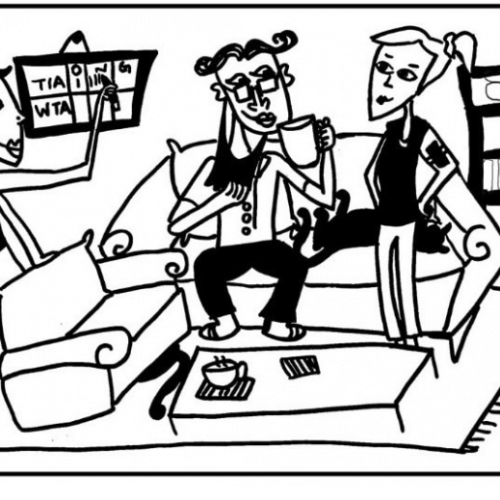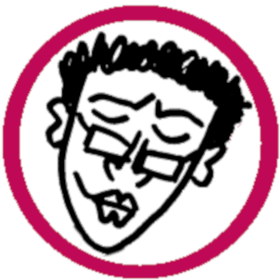Welcome to #MDGcomics: Mzungus in Development and Governments! A Phd turned Graphic novel about Mzungus in Development and Governments.
Meet Omar, the one with the fake beard. Omar is an anthropologist from the African country (un)imaginatively called Democratic Republic of Straight Lines (DRSL). Specializing on the International Development and Humanitarian sector, he is interested in the expatriate community in charge of aid. Those working to alleviate poverty, respond to crises and strengthen the public sector: the Mzungus, as some African languages call them. In particular, Omar documents their customs, beliefs and interactions with the local society. Based between London and DRSL City, he is often invited to speak on behalf of Africa at various conferences. In 2018, he completed his PhD, but no academic journal agreed to publish any part of it, so his friends Naga and Greta convinced him to turn it into a graphic novel and publish it online. It tells stories of Mzungus and Goals that were never reached, and it is called #MDGs: Mzungus in Development and Governments.
Omar summarised the first 6 sections of his Research Methodology Chapter for us below. Allegra lab will then publish a new section of this fantastic PhD comic every week!
Who are these Mzungus?
Etymologically, they are “persons of foreign descent, who wander around without a purpose and behave rich.” With a little help from his friends Naga and Greta and a disguise, Omar observes and documents the unrealistic Goals of MDGs posted in his country.
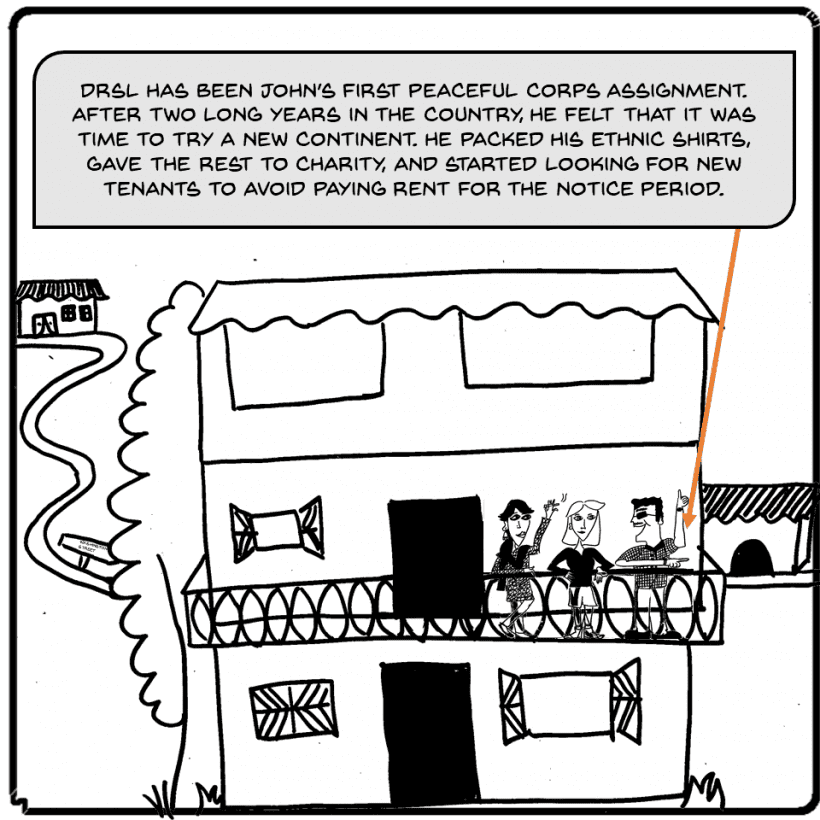
In Section 1 we get to know Washington Street, its people and stories: John’s quest for more adrenaline; Paulo’s midnight capoeira; Lisa and Amir’s love despite geography; Abdallah and his wife’s patience for mispronounced consonants; the cats’ patience with lonely humans; Anne, who doesn’t know about power cuts and Jose, who does know the unfairness of employment policies. Most importantly, we get to know the new tenants of Washington Street: Naga and Greta, who welcome Omar in their apartment.
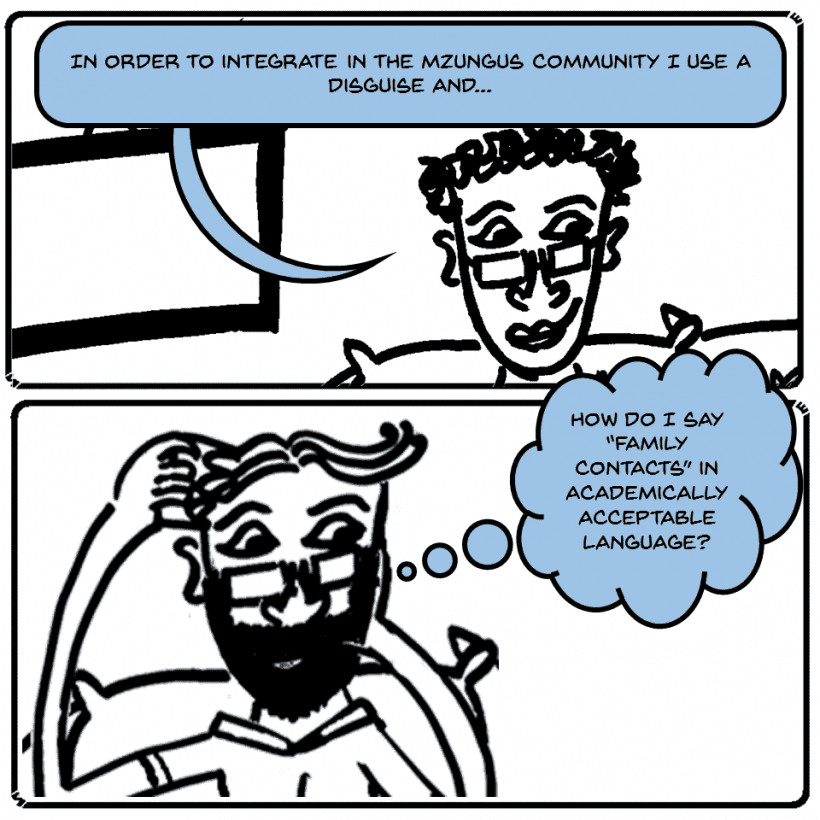
In Section 2 Omar shows the different methods used in his field research: disguising as taxi driver to be invisible in the eyes of Mzungus; socializing and calling it unstructured interviews; powerlessly listening to Mzungus’ fascination with divided societies and calling it semi-structured interviews. He also learns about career progress in crisis, rest and recuperation, the large arrays of roles a memsahib can take on, and finally loses his patience in front of the lack of a critical mass of skills. Time for some R&R.
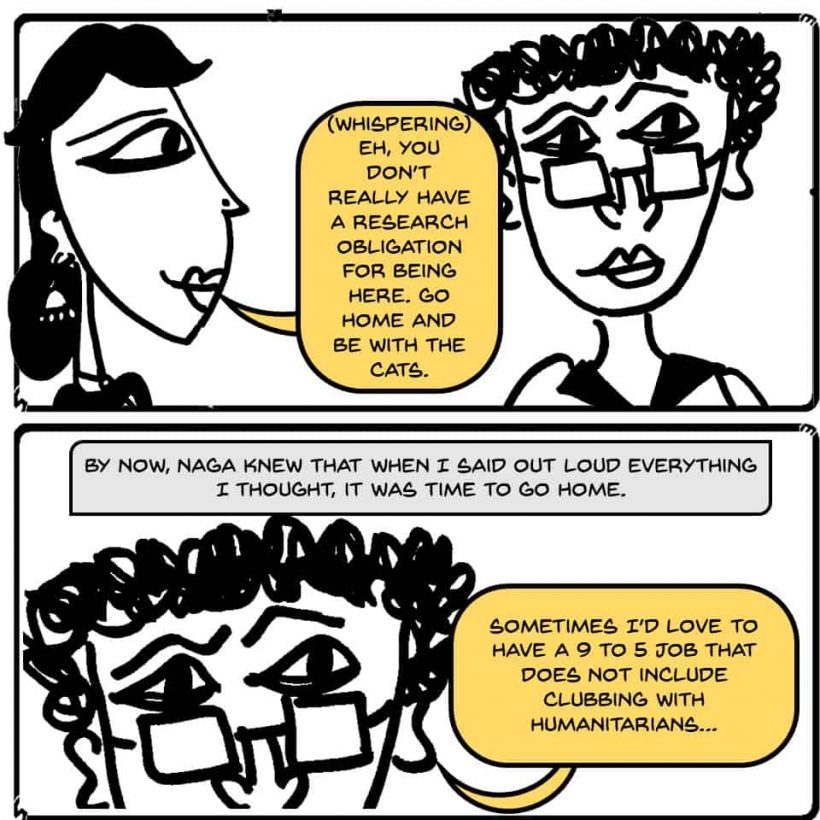
In Section 3 Omar is introduced to humanitarian clubbing and, at the end of a long evening, wishes to have a job that does not include clubbing with humanitarians and alike. He also interviews Naga on working in development: the lack of space, the lack of visas, but also the admiration for her local perspective on poverty. Finally, after some intense fieldwork, Omar finds the evidence showing that the fight to extinguish hunger for Terms of References that don’t require knowledge of the socio-political context is still unaccomplished, and therefore: 1) his PhD is justified; 2) more humanitarian clubbing might be needed.
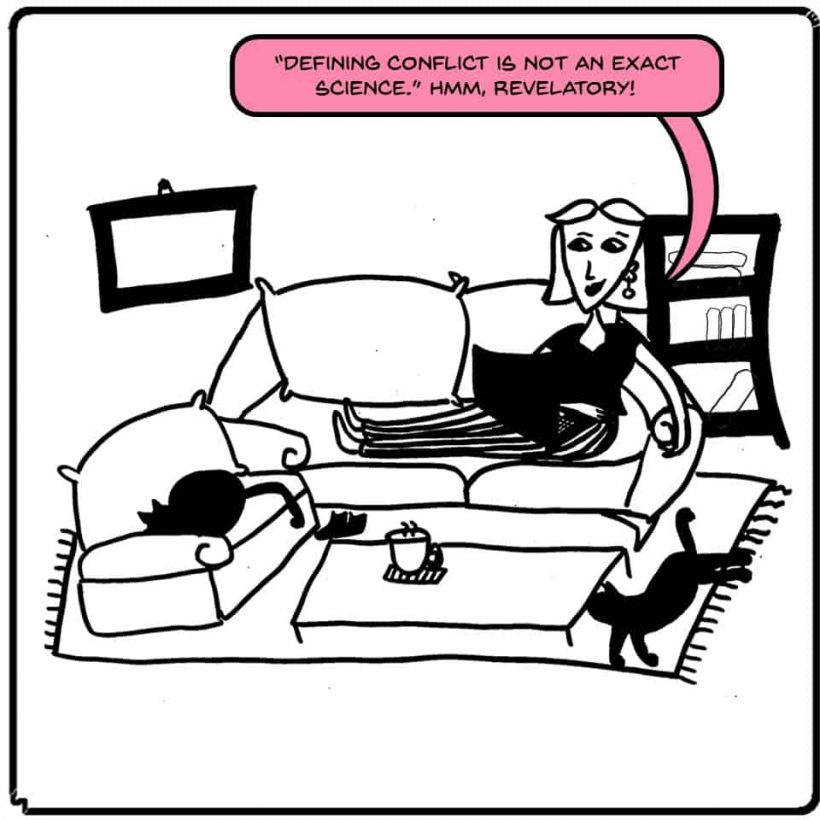
In Section 4 Omar seeks inspiration from Naga and Greta’s workplaces for his documentary evidence. After all, Mzungus need to sustain their livelihoods too. Naga also develops a proxy indicator to measure their household welfare. How many times do you hear TIA* every day?
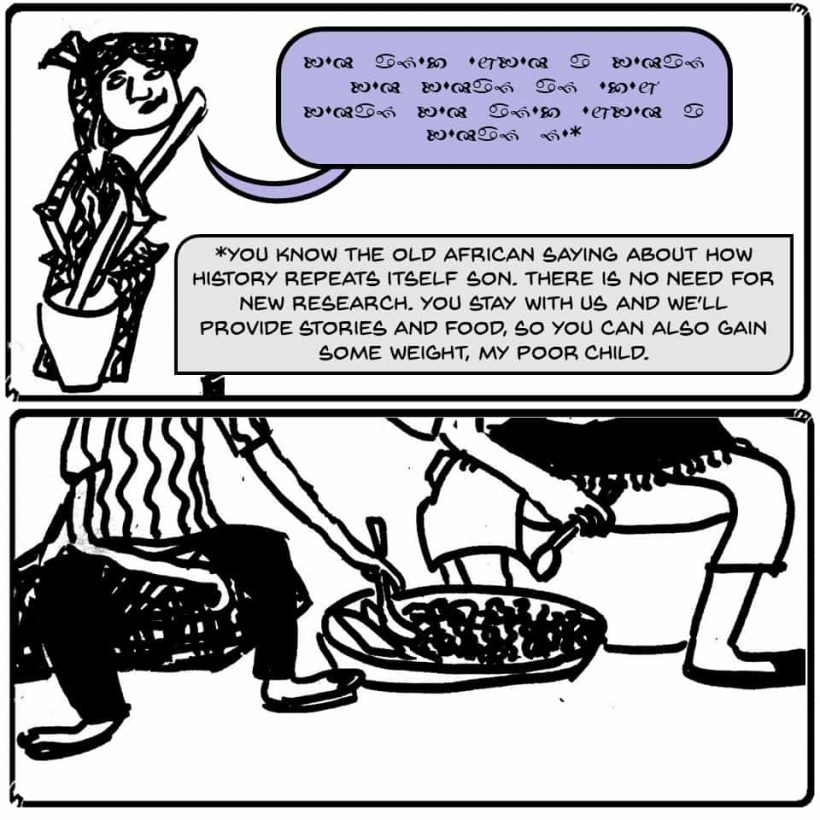
In Section 5 Omar begins to question the novelty of his research and begins to feel a strange déjà vu as his grandfather quotes to him from the Empire’s archives. Are all these “solutions” just wild ghosts with softer names and more PC** donors? Is he beginning to get as dizzy as his subjects of research?
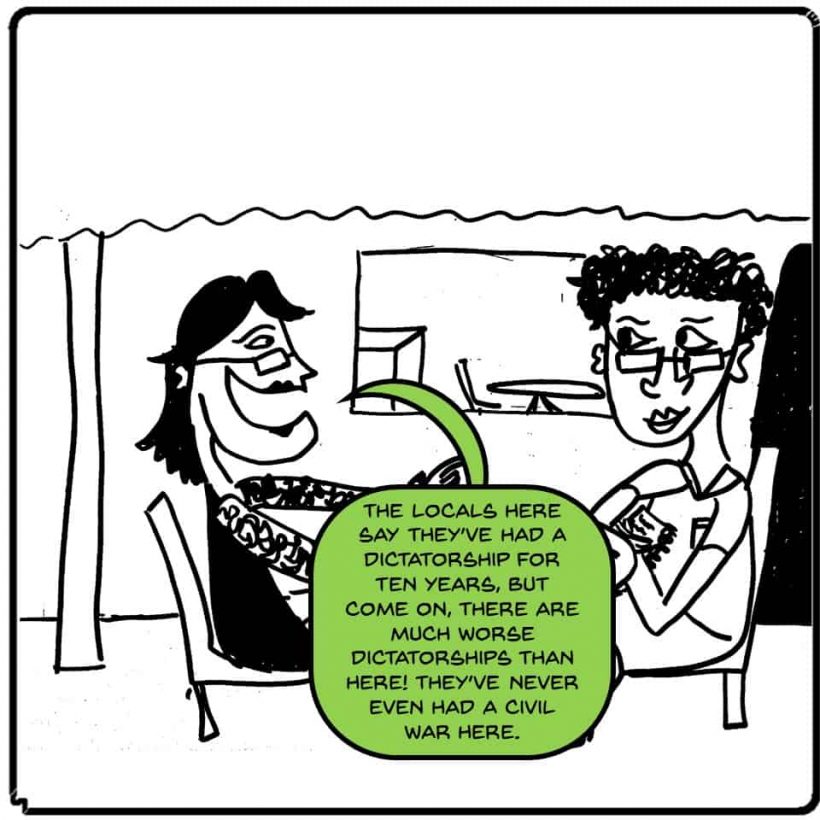
In Section 6 Omar unpacks the hidden differences in an otherwise seemingly monolithic Mzungus tribe: ethnic divides caused by The Mosquito, The Bottled Water or The Duty Station – or a combination of the three; and competitions on who has it longer (no, not that, Mzungus comply with masculinity models taught in anti-sexual harassment courses). Omar also discovers that the different tribes, often on the verge of civil war or space grabbing at boring dinners, unite and blindly follow one single holy book (Hint: With information of most value to Mzungus).
*This is Africa
**Politically Correct
Sign up here to receive this weekly comic in your inbox, or stay tuned for more episodes on Allegra!

